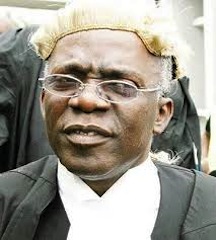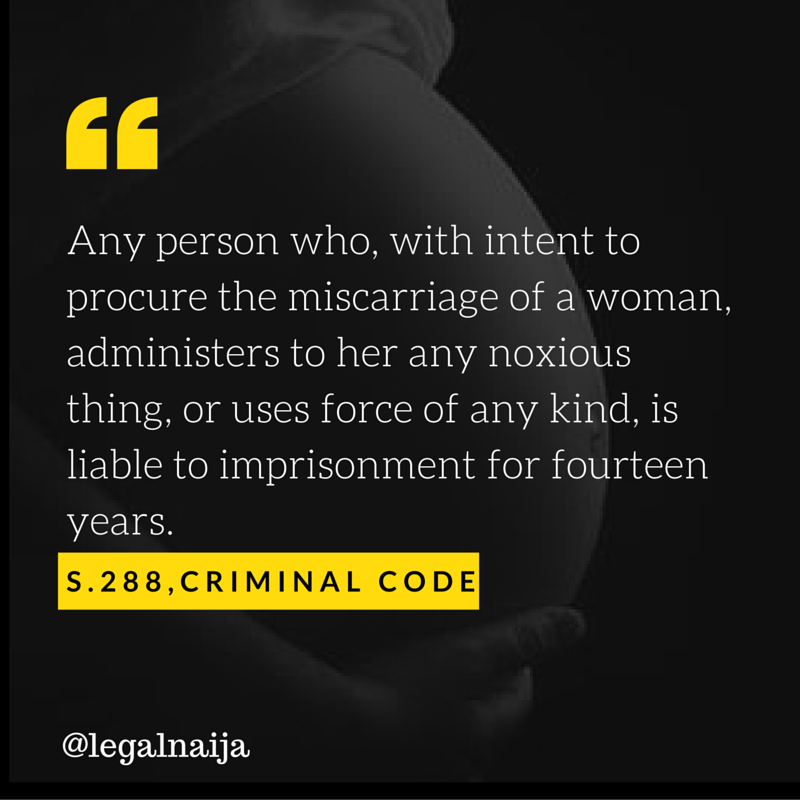
Mini Grids; Does the new regulation depict a bright future for Nigeria | Okezi Okah-Avae

Federal Government of Nigeria (“FG”) has long since declared its
intention to solve the country’s perennial electricity problem. However, the
conclusion of the first phase of the privatization of the power sector in
November 2013 has not exactly led to the uninterrupted supply of power once
promised to the populace. Between 50-55% of approximately 180 million Nigerians
do not have access to grid electricity, while the 45-50% of Nigerians who are actually
connected to the grid especially in urban locations, are largely in darkness. Furthermore,
not only are these Nigerians enduring crazy, unrealistic bills but also have no
choice other than to spend excessive amounts on electricity generation sets.
would require more than 160,000MW to achieve its desired electricity generation
capacity. The FG estimates that by the year 2020, the country’s generation
capacity would be in excess of 40GW (40,000MW), and the energy mix will
constitute 69% thermal generation; 17% hydro; 10% coal; and about 4% of
renewable.
challenge
generation refers to a system of power generation evacuated through the
national grid to off-takers which may be the Nigerian Bulk Electricity Trading
Company Plc (“NBET”) who through vesting contracts supplies the power to
the power distribution companies (“Discos”); or directly to Eligible
Customers, as may be declared by the Minister of Power, Works and Housing,
Babatunde Fashola.
due to certain challenges highlighted below, Nigeria has witnessed an alarming
rate of frequent collapse of the power grid. It is gathered that the most
recent system collapse was due to frequency constraints on the grid. Figures by
the Transmission Company of Nigeria showed that power generation dropped
significantly from 3,222.5 MW on April 26, 2017 to 113.6 MW on April 27, 2017.
This, according to industry sources, is despite the increased gas supply to the
power plants following the ‘stability’ in the Niger Delta region.
it was reported in early April 2017 that there was a prior collapse of the
national power grid on April 9, 2017 resulting in the drop in generation from
3,069.5MW to just 108.7MW. However, this moved up marginally to 240MW the next
day. Heavy rainfall at three transmission stations is ascribed to have led to
load reduction which prompted high frequency in the system, subsequently
triggering the collapse of the electricity grid.
of the power consumed by Nigerians is actually on-grid power which the Discos supply
to these consumers. In addition to the above stated reasons for the collapse of
the power grid, on-grid power generation has had other (and notable)
constraints, some of which are identified below:
Unavailability of Gas: About 85% of installed generation capacity is
thermal. Despite Nigeria’s large gas reserves, production has been
significantly low. Gas constraints is said to reduce the power generation
capacity by 1,995MW, and reasons for this include uneconomical gas prices; gas
pipeline vandalism; insufficient gas infrastructure; and uncertainty in
regulation and fiscal policy for gas, amongst others.
Inadequate Transmission Infrastructure:
Out of a total installed capacity of 12,522MW, the
existing transmission system is only capable of delivering about 5,300MW. A
major reason for this is Nigeria’s current weak transmission infrastructure
which is mostly radial. This means that it’s a single path of transmission with
a power source at one end. Thus any fault in the path could potentially lead to
a collapse of the transmission network. The Transmission Company of Nigeria
plans to upgrade the transmission system to a capacity of 11,000MW by 2020
(subject to adequate funding and completion of projects planned for
implementation); however, the transmission infrastructure in its current state is
unable to accommodate the estimated increase in generation by 2020.
the privatization of the power sector in November 2013, the Nigerian Electricity
Supply Industry has faced with liquidity issues resulting from non-cost reflective
tariffs. The Discos have found it difficult collecting sufficient revenue to
pay their power bills which should sustain the rest of the value chain that
includes the Gencos, gas suppliers and service providers. This has led to a cash
crunch in the market and a clear disincentive to investment in additional
generation or capital expenditure for the Discos.
Privatisation : The privatization process of NIPP plants should have had
the capacity to add close to 4,775MW to the grid. Unfortunately, issues such as
non-availability of gas; non-completion of some of the NIPP plants; and
inadequate gas and transmission infrastructure had hampered this development. Furthermore,
the current liquidity issues, and the lack of government credit enhancements in
the present circumstances, have not given potential investors the confidence to
invest in the acquisition of the assets. Access to funds from Nigerian Banks is
limited, and the alternative is international funding which would be subject to
more scrutiny by international banks.
the above, it is imperative that whilst the issues are being resolved, we
should look at viable solutions for increasing generation that would hopefully
be somewhat isolated from some of the issues raised above.
recent years, Nigeria has been at the forefront of promoting a cleaner and more
modern energy in Africa. The regulatory space around solar power investments in
Nigeria has also seen some transformation, which has served as an incentive for
the recent growth in both off grid and on grid solar power developments. However,
there is still so much to achieve in this space but the willingness of the FG
and policy makers to further develop the space is evident and noted.
should be noted that off-grid technological solutions mainly mini-grids that
can power communities without access to electricity (unserved), as well as
provide reliable power supply to under-served urban centers, metropolis and
housing are being blocked by regulations that seem to place them and the
Nigerian consumers, at the mercies of Discos.
to the Nigerian Electricity Regulatory Commission (“NERC”), power
distribution firms, otherwise known as Discos, will soon begin the development
of mini-grids to augment electricity supply to households, businesses and
institutions in the country.
mini-grid is any electricity supply system with its own power generation
capacity, supplying electricity to more than one customer and which can operate
in isolation from or be connected to a distribution licensee’s network. Within
the regulations, the term mini-grid is used for any isolated or interconnected
mini-grid generating between zero kilowatt and one megawatt of generation
capacity. In accordance
with its power to make regulations, the NERC is currently working on a new
mini-grid regulation with the main objective of accelerating electrification in
areas without existing distribution network (also known as unserved areas) and
areas with an existing but poorly electrified or non-functional distribution
grid (also known as underserved areas) by attracting participation of private
sector, communities and non-governmental organizations in achieving nationwide
electrification. It is imperative to point out that the NERC intends to use the
draft Mini Grid Regulation to attract investments into mini-grids without
hampering the operational successes of the Discos. After a comprehensive review
of the draft Mini Grid Regulation, the question of whether the proposed
regulation shall work for investors’ spring to the mind of the writer of this
article.
Regulations & Some of its Technical Issues
proposed regulation will provide massive investment opportunities for current
and potential mini grid power providers, solar power companies in particular,
as Nigeria has a serious resource advantage in that area. According to industry
experts, the regulation shall sought to minimize major risks associated with
mini-grid investments such as sudden tariff changes and stranded mini-grid
operator investments due to extension of main grid.
Chinedum Ukabiala, the Deputy General Manager at NERC and the Head of Renewable
Research and Development (RRD), suggested that the strategic gains of the Mini
Grids Regulation to market players are that there is the opportunity to start a
small business in electricity generation and distribution and then expand to
bigger utility companies with the expected benefits of improved revenues and
returns. He believes that it is easier and simpler to start a small business
than large scale businesses in the electricity industry and this is more so
when the regulation will be light-handed.
2015, NERC invited inputs from the general public whilst preparing the first
draft of the Mini Grid Regulation. Subsequently, NERC issued a statement which
said “The regulation seeks to minimize
major risks associated with Mini-Grid investments such as: (1) Sudden tariff
changes, as tariffs would have been agreed in advance by the relevant parties;
and (2) Stranded Mini-Grid operator investments due to extension of main grid
(into mini grid geographical locations). In such cases, a fair compensation
mechanism would be applied for Mini-Grid operators that choose to exit.”
is expected that the Mini Grid Regulations should aid in the improvement of the
state of power access in rural Nigeria while simultaneously providing an
opportunity to deploy more renewables such as solar instead of fossil-sourced
power. Additionally, the possibility of having these mini grid projects
completed in record time, relative to delays in main grid expansion also
provides an opportunity for rapid power-induced economic
development/industrialization in rural areas. Licensing burdens would
predictably also be reduced drastically or completely removed. Further, a
flexible tariff structure that is not over-regulated but would guarantee
returns on investment would be implemented. The Mini Grid provides a policy
also make recommendations to the Federal Government of Nigeria for specific
incentives and, especially, for Solar. It will remove exclusivity to the
geographical area of the (current) distribution companies.
manufacturing sector in Nigeria, which has long suffered due to lack of steady
power supply from the grid, should be a key benefactor of this Regulation.
Already many manufacturing hubs and organizations in Nigeria have been reliant
in one way or another on a certain form of mini grids, for example a shared
power plant and/or on-premise captive sources. However, the economics of
procuring power from these sources cannot be as advantageous as commercial and
third-party controlled distributed sources, where power providers will benefit
from the economies of scale in supplying several consumers, as well as the
improved efficiencies of hybrid mini grid systems (such as Solar/Diesel
hybrids). These and several other incentives will be cascaded to the connected
mini grid consumers. Thus as the regulation for mini grid owners/power
suppliers become better, consumers in turn receive more reliable and affordable
power.
spite of this and several other already completed reforms in the solar space in
Nigeria, there seems to be calls for more to be done, especially when one
compares Nigeria with some other solar markets in Africa. For example, while
the importation of solar panels enjoys free import tariff in Nigeria, to bring
in other components such as batteries used in setting up a solar power plant is
subject to an unfair tariff and Value Added Tax (VAT). Kenya is a good example
where the Energy Regulatory Commission (ERC) has zero-rated the import duty and
removed Value Added Tax (VAT) on renewable energy equipment and accessories
including solar.
Mini-Grid Regulation would drive new and improved investments in energy supply
solutions to rural communities in Nigeria. Apart from achieving deployment of
renewable energy sources, this regulation would help cut deficit in power
supplies in rural communities. At the time of writing this article, the new
regulation is still undergoing public consultation.
to the regulation, a mini-grid developer who intends to distribute power larger
than 100kW from the isolated mini-grid is required to apply for a mandatory
permit through NERC. However, if the generation capacity of the power station
installed is larger than 1MW, the plant is not a mini-grid under the proposed
regulation and other regulations apply. In order to encourage mini-grid
development in Nigeria, it is imperative that cost-reflective retail tariffs
should be utilized which is the intention of the regulation. It is the aim of
the tariffs to be higher than current electricity distribution company’s retail
tariffs.
sector funding will play a key role in closing power supply gaps in the country
and this will not come unless the private investors are sure of favorable
return on their investment. NERC intends that the regulation takes measures to
de-risk investment in power supply infrastructure to attract necessary
financing. The NERC‘s strategy is to use regulatory instruments to
promote not only the conventional sources but also all options for
sustainability including: energy efficiency, renewable energy, clean coal
technology, rural electrification, mini grid and distributed generation.
regulatory framework to attract renewable energy based power and promote
sustainable energy economic growth, the proposed mini-grid regulation puts
mini-grid operators at the mercies of Discos, while ignoring and denying the
Nigerian customers the choice to access reliable power supply. For instance, Section
7(1)(b) of the Regulation requires that there must be confirmation of the
Disco’s expansion plans which have to be approved by NERC to ensure that the
mini-grid activities will not interfere with the expansion plans into the
designated Unserved Area of the Disco before a permit to construct an isolated
mini-grid can be granted. There is need to clarify that the
mini-grid developer does not need to seek the confirmation of the distribution
licensee’s expansion plan; rather, they have to simply obtain the approval of
NERC. The Regulation should clarify the frequency and protocol for the
Distribution Licensees to submit their expansion plans to the NERC. This writer
further recommends that the Regulation should clarify the frequency and
protocol with which the Distribution Licenses are required to submit their expansion
plans to NERC as it is assumed that the Regulation assumes that Discos would
submit their expansion plans on their own volition. The Regulation does not ensure
that the Distribution Licensee has the resources to back up its expansion plan
and does not deprive a community their inalienable right to power supply that
could have been met by a mini-grid developer. Alternatively, the Regulation
should stipulate stringent penalties for a Distribution Licensee that does not
deliver on its published expansion plans.
Regulation, the applicant must obtain a written consent of the Disco of the
intended area where the operational period of the mini-grid developer within
the five year expansion plans of the Disco.
writer of this article that according to both Sections 7(1) (b) and (c), in
order for the end user (either underserved or unserved) to have access to
reliable electricity, via the mini-grid, they must not only have a written
consent from Discs approving this, but they must also have access to the five
(5) year expansion plans of the Discos, which must have been approved by NERC.
likely problems which may arise a direct result of the foregoing. Firstly, what
exactly are the expansion plans of the Discos? In a situation where the Discos
have come up with these plans, it would be helpful if these plans have already
been delivered to NERC for its approval. Further, if indeed the expansion plans
are with NERC, then why is NERC not making their plans public and taking full
responsibility for its implementation, so that the Nigerian public can know when
they can realistically expect access to steady electricity?
what would happen if the Discos are unable to execute their plans after five
years having denied Nigerians access to electricity as well as the intended
investments by the mini-grid operator; as the new regulation neglected to
provide any sanction or penalty for such failure. It should be recalled that the
disclosure of the expansion plans of the Discos was a part of the criteria
during the handover of the Discos to the successor companies. However, till
date Nigerians are yet to see the plans.
7(1) c should clarify that a written consent from the Distribution Licensee is
only necessary if a mini-grid developer chooses to develop in a location that
is already part of the published expansion plans of a Distribution Licensee. In
addition, where a mini-grid developer needs to seek the consent of a
Distribution Licensee, the regulation should make it clear that the latter has
to respond to the consent request within 30 days. The mini-grid developer may
assume consent in the event that the consent is not received within the
stipulated period.
electricity consumers in underserved areas cannot independently chose to set-up
their own isolated mini-grids. For example, an estate would not be able to
decide on its own to seek isolated mini-grids for supply of electricity in
place of an incapacitated Disco due to the fact that the estate is in an
unserved area (i.e. off-grid).
(g) of the Regulation, Mini-Grid developers are expected to ensure that “all
necessary land for construction and installation of all assets has been
acquired and all necessary permits have been granted to the Mini-Grid
Developer”. This provision assumes that the investor would have acquired all
the land and assets prior to securing the approvals. Although it is
understandable for NERC to insist on screening out investors who may not have
the prerequisite technical and financial capacities, it is important that it
does not douse the interest of potential investors. It is advisable for NERC to
balance the need to select credible investors with realistic demands from
investors. A number of the investors may need to first secure the approvals to
unlock the resources required to acquire the land and other assets. Many of the
financial investors may not wish to expend significant resources if there is a
risk that the approvals may not be obtained. NERC should issue the approval
once the investor is able to demonstrate their financial and technical
capabilities. For instance, in lieu of full payment for the land, NERC may
accept evidence of an option on the land and assets. The Regulation should
require investors to show that they have acquired land rights.
compliance to all existing environmental laws by Mini-Grid Operators. The Regulation
does not state explicitly if an Environmental Impact Assessment (EIA) is
necessary for all scales of mini-grid operations especially considering the
cost of these studies. It is the opinion of the writer of this article that to
safeguard against environmental hazards (such as improper solar battery
disposal), there should be a requirement for Mini-Grid developers to register
with the Federal Ministry of Environment. Furthermore, the FG should stipulate
and enforce the product standards for the various components used in the mini-grids
(batteries, panels, wires, etc.) and enforce a disposal programme that
safeguards the environment.
of the Regulation NERC is required to issue a permit pursuant to Section 7 or
Section 8 or approve a Tripartite Contract pursuant to Section 9 to an
applicant within a maximum period of 30 days from the date of receipt of
complete documentation. This Regulation fails to provide for any stipulations
(or penalties) to ensure NERC meets the 30-day timeline. It is recommended that
should a response not be received from NERC within the prescribed 30 day
period, the integrated mini-grid developer should deem the tripartite contract
approved.
accounts, Section 13(7) and Section 13(8) of the Regulation pertains to the inspection
of accounts for the purpose of adjustment of tariffs and ascertaining
depreciated value as request by Mini-Grid Operator and inspection of accounts
for the purpose of adjustment of tariffs and ascertaining depreciated value as
requested by the Community. Both sections suffer from lack of clarity as to how
the amount referred to in Section 13(7) shall be computed and as to how NERC
shall pay the Community a fee in the event of the Community requesting to
inspect the accounts. It is suggested that the requisite clarity should be
provided in the aforementioned sections to eliminate any future disputes or
misunderstanding amongst stakeholders.
of dispute can be found in Section 20 (2) which pertains to determination of Tariffs
and Other Usage Charges. Here the Regulation stipulates that interconnected
mini-grid operators shall pay the Distribution Licensee a usage charge that
shall be agreed upon between both parties and NERC. However, where the
Interconnected Mini-Grid Operator and the Distribution Licensee are unable to
agree on the usage charges, the methodology described in Annex 8 shall be
applied as a guideline. The next logical question is whether Annex 8 provides
clarity on the methodology for calculating usage charges for interconnected
min-grids or if such could lead to disputes? The Regulation should be more
explicit (preferably with a formula) on how the usage charges should be
determined. Lack of clarity may likely result in disputes. Furthermore, Annex 8
should provide clarity on how disputes should be resolved in a cost and time
efficient manner.
fruition is commendable, it is important that NERC provides policies, laws and
regulations that would protect and improve the lives of Nigerian citizens.
There should be avenue for increased competition and innovation to achieve
this. There should provisions in the proposed regulation that would compel the
Discos to disclose publically their five (5) years expansion plans, as well as
review the mini-grid regulation to reflect the interest of the Nigerian electricity
consumer at the core. This is can only be guaranteed when the Nigerian energy
consumers are availed the opportunity of choice.
seeks to minimize major risks associated with mini-grid investments such as
sudden tariff changes and stranded mini-grid operator investments due to
extension of the main grid to cover the mini-grid area. This basically permits
a fair compensation mechanism that may be applied for mini-grid operators that
choose to exit at any time.
Regulation adds to the growing list of draft and approved policies and plans
for the renewable energy market in Nigeria. The increased activities in the
off-grid renewable energy market (signaled by the increase in policy documents)
are encouraging; however, investors need clarity on the approved policies and
plans for the sector. There is need for an integrated and comprehensive
national electrification plan that harmonizes the various plans. The national
electrification plan should consider the various regions viable for mini-grids.
It should delineate the areas that are best served by on-grid distributors.
Several factors should be considered in creating this plan including cost
effectiveness, natural resource availability, and the infrastructure capacities
of the Discos. Furthermore, the plan should integrate the various resource
plans that have been developed by Discos, government and development agencies
in the power sector. The resource should be public and easily accessible.
Regulation lays the groundwork to the emerging frontier in Nigeria’s
electricity supply industry. Given the current state of grid power in Nigeria,
an alternative is needed to provide electricity to the over 100 million
Nigerians who do not have access to grid power. Mini grids have revolutionised
other smaller countries in Africa, Asia, and South America and there are
promises and lessons to be learned from those experiences. At the time of writing this article, NERC has
reiterated its optimism that the draft Mini Grid Regulation
will become law in the first quarter of 2017. Stakeholders’ views have been
taken and deliberated upon. It is the wish of the writer of this article that
NERC may consider the recommendations made here in to achieve the progress and
development of Nigeria’s power sector.

& Natural Resources, Senior Associate at Bloomfield Law Practice











